Hello from The Arc NW,
In previous posts, I have discussed Spending Plans (Budgets), Tracking Spending, Needs vs. Wants and Saving. Let’s just say that you are sticking to your Spending Plan, and now have money to save because you have decreased your spending and/or increased your income. You are determined to have better money habits. Congratulations!
Now that you have money to save, where will you save that money? There are many options: at home, savings/checking account at a bank or credit union, certificate of deposit (CD), money market account, 401K, treasury bills, short-term bonds, or riskier options such as stocks and other investments. We will focus on savings/checking accounts.
Why save your money in a saving/checking account as opposed to saving it at home? The most important reason is because if your money gets stolen via fraud or other theft and you notify your bank or credit union or the right company, the bank or credit union will replace your money once they determine that you were not involved in the transaction. On the other hand, if you save your money at home and someone steals it; once it is gone, it’s gone. You may do what you can to try to determine who stole it and recover it but if you can’t, “tough cookies”, you’re simply out of money. No bank or credit union to turn to for replacing your money. I don’t know about you, but I think this is a rather good reason to save your money in a bank or credit union. Your money is insured in banks and credit unions by federal government backed insurance.
Some people choose to use banks and others use credit unions or both. Without going too deep into the differences between banks and credit unions, I’ll keep it simple. Banks are for-profit institutions owned by investors where you are a customer with no say-so in how the bank is run. Banks tend to offer more financial products, have more brick-and-mortar locations (and ATMs) and more technology-based services so that the cyber attacks on gas companies can be reduced. However, overall, banks have higher fees and interest rates, after all they must make money for their investors.
On the other hand, credit unions are not-for-profit institutions that are owned by the members who do get to vote on how things are run. Credit unions may not have as many financial products or brick-and-mortar locations (and ATMs) as banks and may have less technology-based services (such as online banking options) but tend to have lower fees and interest rates on products with a focus on more personalized customer service.
Another option for saving is an ABLE account. ABLE stands for Achieving a Better Life Experience. An ABLE account is a tax advantage savings plan for persons with disabilities that occurred before the age of 26 (the person does not have to be 26 to have an ABLE account) and allows the person to save up to $15,000 annually without any impact on public benefits such as Food Assistance, Medicare, or Medicaid. Public benefit programs limit the amount of assets a person can have to $2000 but with an ABLE account the person would still be eligible for public benefits. States do have limits on the total amount that can be in an ABLE account so please check with your state for guidelines. Of course, there are rules
on what the money in the ABLE account can be spent on, but the list includes everyday needs and special services that the person may need to live a full life. The process for opening an ABLE account is simple and can be completed online. For the state of Michigan google Home – MiABLE for further details.
So, which will you choose? Be sure to contact the financial institution and ask plenty of questions before opening an account. Having a trusted family member or support person with you may be helpful.
**** The next workshop Spending and Saving is scheduled for Tuesday, June 22, 2021, at 6:00 pm. Please feel free to contact me to register for the next workshop. We would enjoy having you join us!
Stay tuned…. Be safe…. and…Be empowered.
Bettie Cunningham, LBSW
Disabilities Advocate/Certified Financial Coach/Counselor
Office: (313) 532-7915, ext. 204 Email: bcunningham@thearcnw.org

